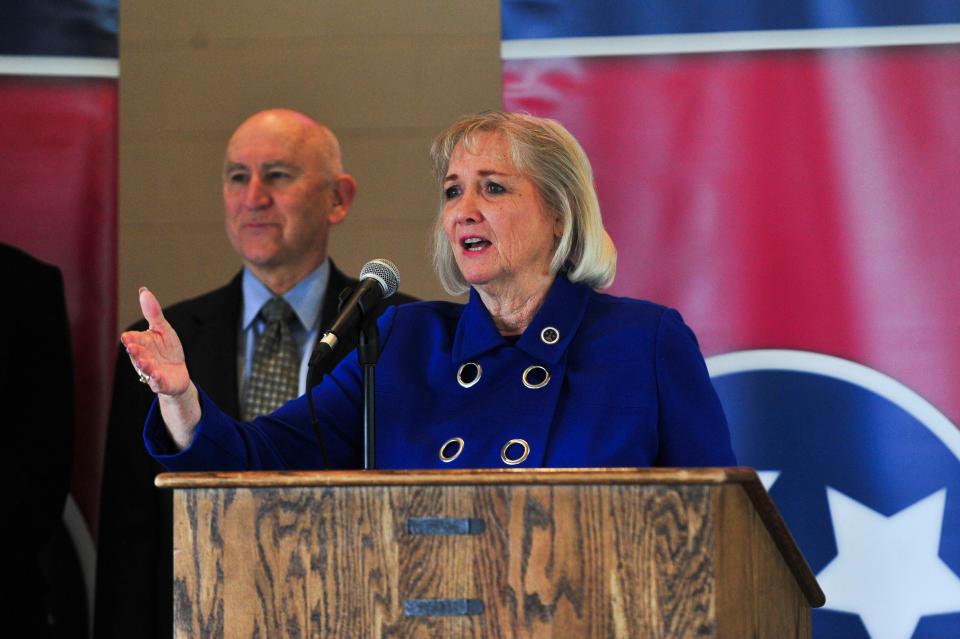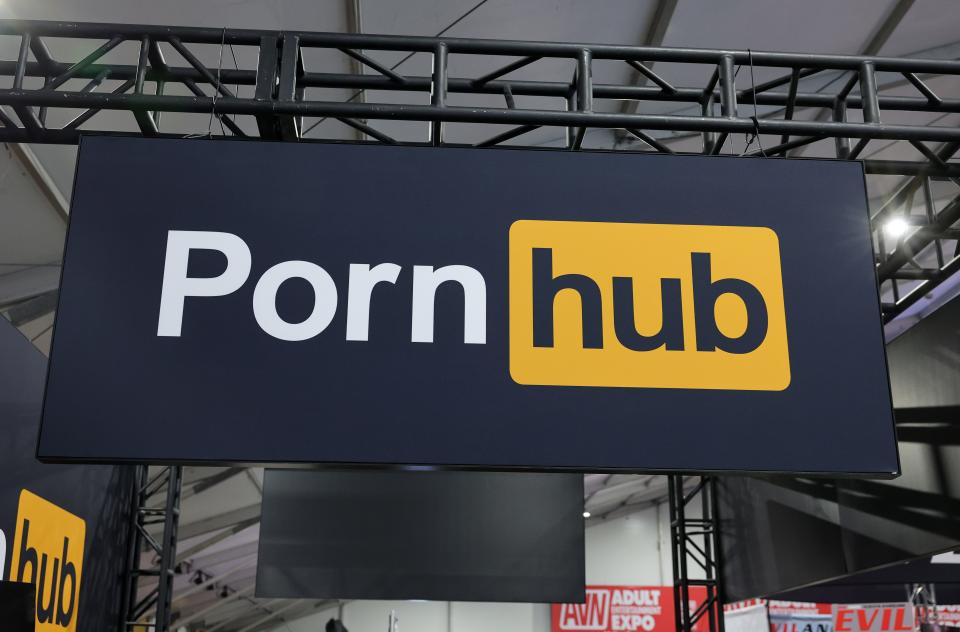Tennessee Gov. Bill Lee signs age-verification bill as First Amendment debate continues
Tennessee has joined a growing list of states that are requiring websites with adult content to age-verify viewers, a move that is raising alarm from some First Amendment advocates who warn the law may have wider-reaching impact than initially expected.
Gov. Bill Lee signed the Protect Tennessee Minors Act into law on Tuesday following overwhelming, bipartisan passage in the legislature earlier this year. No lawmaker voted against the measure.
According to the law, websites that are accessible in Tennessee that have one-third or more content that could be considered “harmful to minors” must verify the age of each user who attempts to access the site every 60 minutes through uploading a state ID or other methods, as well as retain seven years of anonymized data on users who access the site.
Similar laws have passed in 19 other states and are under consideration in seven more, but Tennessee is the only one with felony penalties. In two states, the laws are either tied up in state and federal court.
Mike Stabile, director of public affairs at the Free Speech Coalition, an organization that represents adult sites on First Amendment issues, is part of the legal challenge to a law in Texas and said the intent of the measures are not proving successful.
“These bills are a failure at protecting minors,” he said. “The (online) traffic has just shifted away from legal, responsible sites to illegal and pirate sites overseas.”
Last year, David Hudson, a professor at Belmont University’s College of Law and a First Amendment expert, said an age-verification law aimed at content that is "harmful to minors" could withstand legal challenges.
But he said the concept of obscenity is controversial. “There is such a narrow range of material that's not protected by the First Amendment — that's only sexually explicit content that has no serious literary, artistic, political or scientific value — and again, that’s the ‘eye of the beholder’ situation.”
Still, lawmakers — both Republicans and Democrats — pushed through the new law, which takes effect Jan. 1.
"The statistics are staggering," said Sen. Becky Massey, R-Knoxville, the Senate sponsor of the bill, when describing the urgent need for the law. "In a recent study done, 73% of teens ages 13 to 17 have watched pornography online. 54% had done this by age 11."

Adult entertainment industry warns of unintended consequences
The topic of defending access to adult content is sometimes a difficult one to discuss, Stabile said, as it’s often considered a taboo topic.
But what shouldn’t be a taboo topic: your constitutionally-protected right to free expression, he said.
“You don't need the First Amendment for speech that everybody agrees to," he said. "We don't want the government policing our access to ideas. It is a slippery slope.”
Content that falls under this verification blockade is spelled out in the bill with an explicit list of sexual depictions and activities. But in addition to specific sexual acts, the bill notes that any content deemed “harmful to minors” falls under the law.
The demarcation of content as “harmful to minors” — a classification that has been used with increasing frequency at the state and local level to pass laws restricting drag performances, increase penalties on librarians, ease the removal of books from school libraries, block pride events and ban public displays homosexuality — includes any content that “the average person, applying contemporary community standards … would find sexually explicit and harmful or inappropriate for minors or designed to appeal to or pander to the prurient interest.”
Stabile said that is a major concern with Tennessee's bill, which could be used to age-block material unrelated to pornography.
“There is a public library in Idaho that announced last week that it would be banning minors from coming into the library because it could not guarantee that that minor would not access material harmful to minors,” he said. “The language that they're using in that statute is quite similar to what we're facing in this bill. That it includes LGBTQ content, sex education content."
Stabile's organization worries those who do not participate in the age-verification system will simply try and access content hosted overseas.
“Consumers get to a site that has a age-verification, and what do they do? They hit the back button, they go back to Google, and they find another site that doesn’t have it. And those sites are overseas—they're not responding to U.S. law. So in terms of preventing minors from accessing adult content, it's been a failure.”
In a statement to The Tennessean, representatives from Aylo — the parent company of Pornhub, one of the biggest players in the industry — said that while the company has long supported age verification, the implementation of these particular laws “is ineffective, haphazard, and dangerous.”
The company raised concerns about collecting private information and proper enforcement. A company spokesperson cited Louisiana, which has a similar law in place.
"Our traffic in Louisiana dropped approximately 80 percent," the spokesperson said. "These people did not stop looking for porn. They just migrated to darker corners of the internet."

Instead of new laws, the company said age-verification on phones, not websites, and widely available parental controls can create safe environments for minors with no risk to someone's First Amendment rights.Pornhub has blocked online access in eight states around the country following the passage of laws like Tennessee’s measure, which Stabile said might be what a lot of lawmakers want to see take place.
"But I don't think that these laws are, by and large, done in good faith," he said. They are done to have that that chilling effect.”
Preventing minors from viewing pornography is preventing 'child abuse,' bill sponsor says
On the floor of the Senate, Sen. Becky Massey, R-Knoxville, the Senate sponsor, said the age-verification process would prevent “child abuse.”
“Exposing children to pornography is a form of child abuse in my opinion,” she said. “And is harmful to their mental health and developing healthy relationships. We need to apply the same standards in the cyber world that are in place in the physical world. No one under 18 can walk into an adult establishment or buy adult-oriented materials. We need to broaden this to include the same standards for cyber opportunity.”
Only one Senator spoke up with privacy concerns — Senator Minority Raumesh Akbari, D-Memphis.
“When I was in the House, there was a big leak for a program that someone here might’ve gotten caught up in, called Ashley Madison,” she said. “My only concern for those who choose to use these websites as adults — about the protection of their privacy. What provisions are in this to protect that? Because I understand that we need to make sure children are not accessing these materials.”
Massey stated the same penalty for a website or organization that did not perform age qualifications — a class C felony — would apply to the organizations if they did not anonymize the eligible data collected to ensure age qualification, like state identification, mortgage information, educational records or employment records.
In an earlier committee hearing regarding the bill, Massey likened it to checking someone’s ID to enter a bar.
“The House sponsor worked significantly with the (Attorney General) and other entities to get this passed,” she said. “It’s not a lot different than when underage people try to go to an alcohol-related site. But it’s got a little bit higher standards because the ability to do better age verification….it’s a good bill.”
The House sponsor, Rep. Patsy Hazelwood, R-Signal Mountain, said the bill was "of critical importance."
"There’s a great deal of in-depth research and data that shows that exposure to these types of materials at a young age is very damaging to our children," she said. "So this is a way to protect our children in Tennessee"
The USA Today Network - Tennessee's coverage of First Amendment issues is funded through a collaboration between the Freedom Forum and Journalism Funding Partners.
Have a story to tell? Reach Angele Latham by email at alatham@gannett.com, by phone at 931-623-9485, or follow her on Twitter at @angele_latham
This article originally appeared on Nashville Tennessean: Gov. Lee signs TN age-verification bill as speech debate continues

